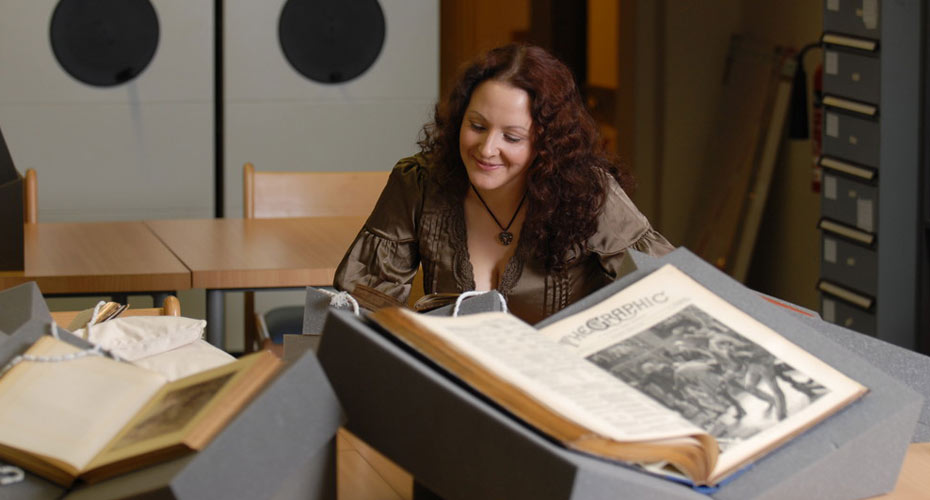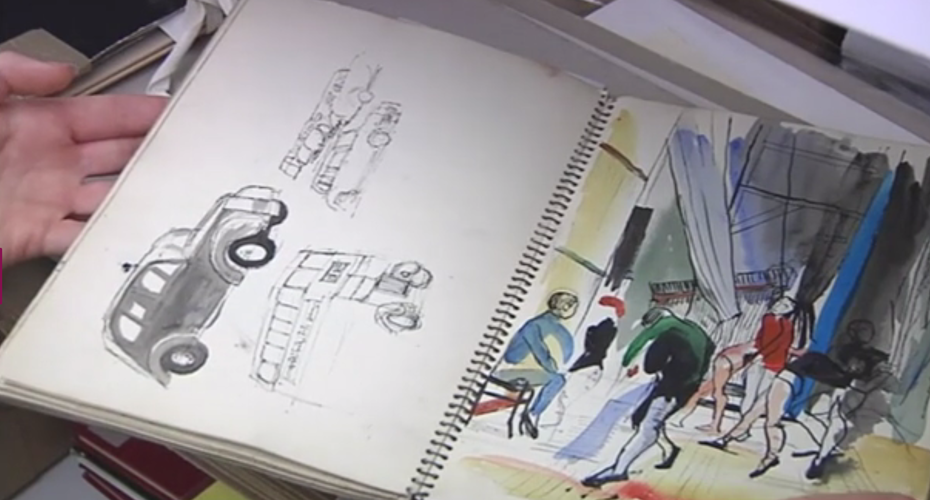Heritage resources
At the University of Exeter, our heritage resources are second to none. You will have access to top-quality facilities, including our library, collections and archives. The University has invested £1.2m in a new Digital Humanities Lab, housing specialist equipment and providing space for academics, students and creative partners to research, study and collaborate.

Special Collections
The University of Exeter is home to a multitude of unique and distinct collections, accessible to students, staff, external partners and researchers. Heritage collections provide hands-on experience, offering an authentic insight into history.
Our rare and valuable archive selection consists of books, manuscripts and maps covering all subject areas, and are available to students as well as external researchers. These include the richest collection of twentieth-century literary papers by writers associated with the South West of England in any university library.
They cover all subject areas with major highlights in Twentieth-Century South West Writing, Literature and Visual Culture, Victorian Culture and Imperial Endeavour, Arab and Islamic Studies, and Religious and Parish book collections.

Bill Douglas Cinema Museum
Home to one of the largest collections of material relating to the moving image in Britain, The Bill Douglas Cinema Museum is located on the University’s Streatham Campus. Being an accredited public museum and academic research facility, it offers a fascinating insight into the heritage of Britain’s entertainment industry, and the encircling dynamics of society. Museum items are used in external consultations and exhibitions, as well as within the seminar works and module programmes of the College of Humanities, particularly in the departments of English and Film Studies, Modern Languages, History, Drama, and Classics.
Exeter is also home to The Centre for Interdisciplinary Film Research (CIFR), which fosters a cross-departmental research environment that has proven remarkably productive for prospective employers, graduates and academics alike.

Penryn Archive
The archive on our Penryn campus is also home to a wide range of Special Collections, with staff on hand to offer skills advice for use. The archive brings together original records with book collections, including Charles Wood’s slide collection; the Camborne School of Mines archive; and the Cornish Performance Archive, featuring Kneehigh and WildWorks theatres, unpublished Cornish art history and papers from the Institute of Cornish Studies. Penryn’s archives are unique, eclectic and inspiring, making them valued heritage sources for use in research and creative practice by both internal and external users.
Cornish Audio Visual Archive (CAVA)
Led by Dr Tregidga, Senior Lecturer and Director of the Institute of Cornish Studies this archive harnesses the multimedia power of oral history, film, music and photography to find new ways of interpreting and presenting Cornwall to a wider public. The CAVA initiative, in partnership with The Cornwall Centre and Cornwall Record Office, strives to develop links with cultural, educational and archival institutions from across the globe, and to provide training and support for those interested in its multimedia methodology. Central to its vision is the ongoing development of a ‘Living Archive’, which goes beyond documentation of the past to capture the ongoing heritage process in Cornwall as it occurs in the present.

Cornish story
Cornish Story conducts outreach work for the Institute of Cornish Studies. Designed to promote a greater knowledge of Cornwall and the Cornish diaspora overseas, Cornish Story offers a platform from which to disseminate CAVA collections, and raise awareness of not only Cornish heritage but also the region’s contemporary context. Cornish Story hosts a wide range of accessible resources that complement the archival collections, and carries out educational functions including informative workshops, seminars, conferences, and publications.
